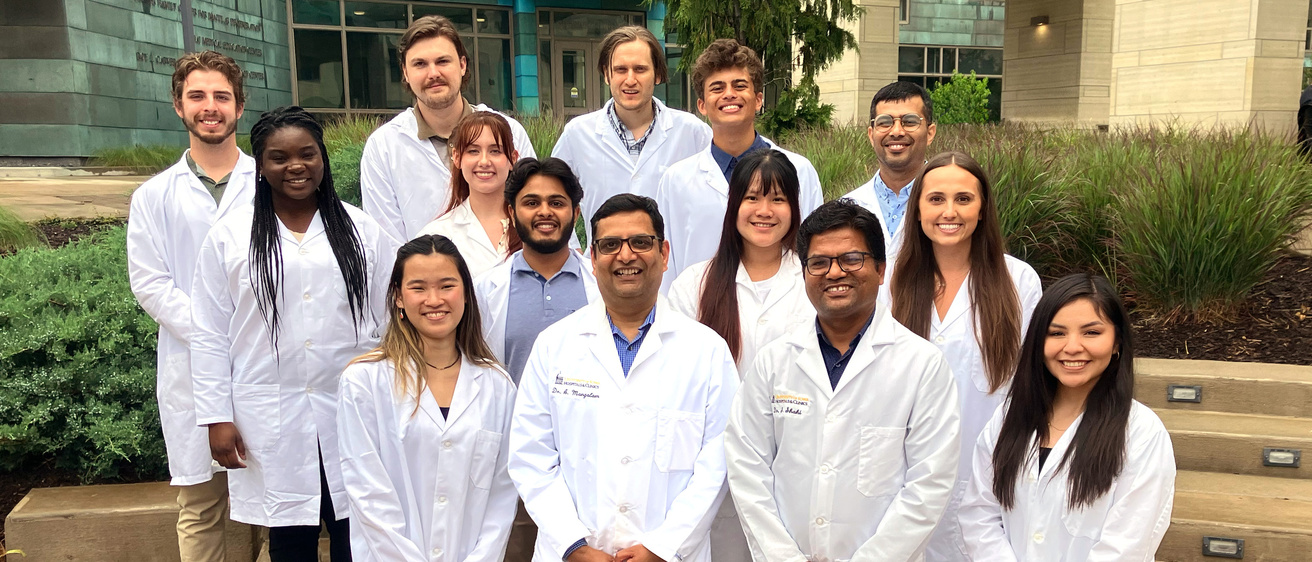A recent article in The Conversation U.S. highlights cutting-edge research from the Mangalam Lab in the Department of Pathology at the University of Iowa, based on their newly published study in PNAS. The study uncovers a key link between gut microbiota and multiple sclerosis (MS), identifying a specific bacterial ratio that may act as a biomarker for the disease and help predict its severity.
Diet and the gut microbiome have emerged as important factors in regulating the pathobiology of MS, an inflammatory and demyelinating disease of the central nervous system. The Mangalam Lab has previously shown that people with MS have distinct gut microbiota compared to healthy individuals.
In this new study, the team used a comprehensive “bedside-to-bench-to-bedside” approach and identified the ratio of two gut bacteria—Bifidobacterium and Akkermansia—as a strong predictor of MS presence and severity. A lower ratio was consistently associated with more severe disease in both human patients and mouse models. Furthermore, mice colonized with MS-associated bacteria developed more gut inflammation and severe disease even before symptoms appeared, suggesting that this imbalance may not only serve as a marker of disease but also drive disease progression. These findings indicate that the balance of specific gut microbes, particularly the Bifidobacterium-to-Akkermansia ratio, may serve as a biomarker for MS presence and severity and open avenues for microbiome-based therapeutic strategies.
The study was led by Dr. Sudeep Ghimire, a postdoctoral fellow in the Mangalam Lab, with contributions from Peter Lehman (Experimental Pathology graduate student), Dr. Shailesh Shahi (junior faculty, Pathology), Leeann Aguilar from the Microbiome Core, and collaborators from the Department of Neurology led by Dr. Tracy Cho and Dr. Cherwin from the College of Nursing. This work was supported by the National Institute of Allergy and Infectious Diseases, the Veterans Affairs Merit Award, the National Institute of Environmental Health Sciences, the Roy J. Carver Charitable Trust, and philanthropic funding from P. Heppelmann and M. Wacek.
